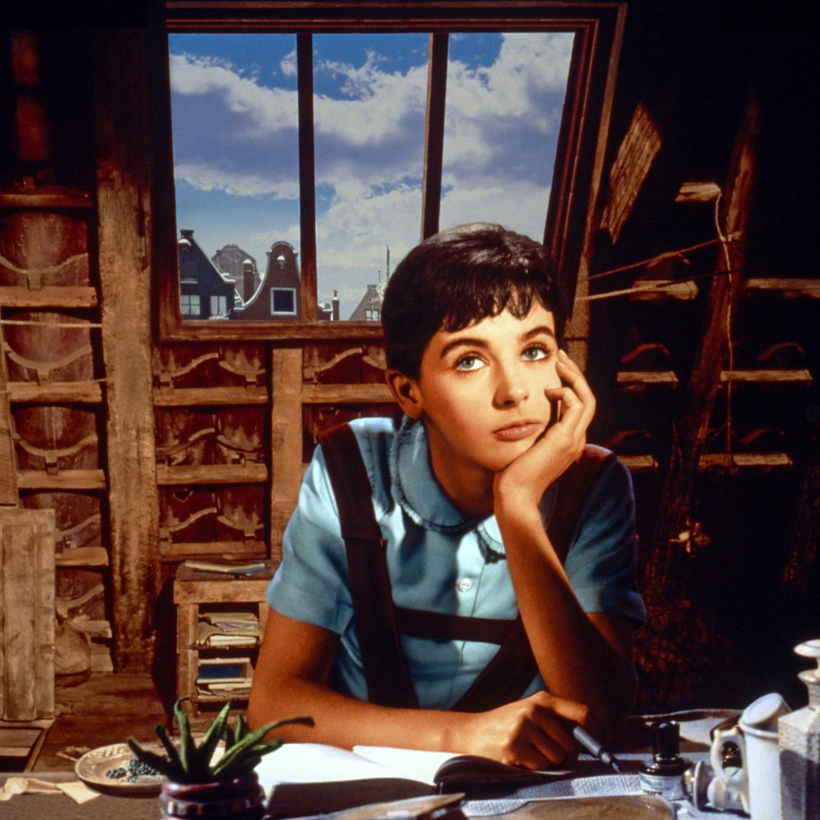On the day that war broke out in the Middle East, a box of 70 tote bags arrived at my house, each adorned with Anne Frank’s face.
This was not a hate crime. The totes were meant to be gift bags at an upcoming screening of my short film, a dark comedy that imagines a meeting between the Anne Frank House and the New York design firm they’ve hired to help them renovate the gift shop to appeal to young people. “The Anne Frank Gift Shop”—which stars Ari Graynor of HBO’s Winning Time and Abbott Elementary’s Chris Perfetti—asks the question: Is there a wrong way to talk about the Holocaust? I’d argue no. But is there a wrong time?

